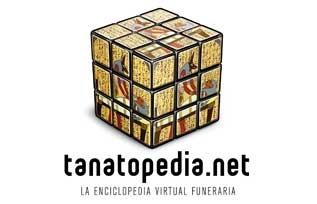Serveis Funeraris Integrals presents Tanatopèdia, a pioneering ‘wiki’ in Spain on funeral topics

Barcelona, November 1, 2010.
Tanatopèdia has been launched. The funeral company Serveis Funeraris Integrals (SFI) has introduced this new virtual encyclopedia on the funeral world, a pioneering project in Spain aimed at sharing aspects related to funeral processes and services with all users.
The new Tanatopèdia starts today, coinciding with All Saints' Day, under the domain www.tanatopedia.net. It will operate as a wiki-style encyclopedia with a simple and agile structure. It will be open to the entire community and aims to be a useful, comprehensive, and reliable tool for all types of users. "Funeral companies are adapting to the needs of today’s society. With the Tanatopèdia, we are leveraging new communication technologies to provide internet users with objective information about the funeral world. We believe it can be a very useful tool that not only shares data but also helps break taboos about death," says Josep Ventura, Director of the Funeral Services area at Serveis Funeraris Integrals.
A worker’s idea brought to reality
The idea for the Tanatopèdia was conceived just a year ago as a result of the new ideas competition that SFI holds annually among its employees. The project was a finalist in the 2009 edition, which allowed its creator, Fidel Martínez—who works as a family service advisor at one of SFI’s funeral homes in the province of Barcelona—to realize his idea. "With the Tanatopèdia, we offer and share knowledge about the funeral world in a 2.0 web environment. In this sense, it was necessary to have a space that could encompass all this information, something that did not exist until now," Martínez states.
At www.tanatopedia.net, users will find concepts and terminology related to death—such as thanatopraxy, burial, or interment—as well as obituaries, curiosities, psychological aspects or help with dealing with death—grief stages and how to overcome them—as well as funeral rituals from Spain and other cultures. "The Tanatopèdia is a tool that will allow us to share knowledge about all types of funeral traditions in our country," comments Fidel Martínez, "but it will also explain how Moroccan or Chinese funerals are conducted, for example."
The information in the Tanatopèdia is directed at anyone who wants to learn about or collaboratively develop various aspects of the funeral domain. "Students, psychologists, journalists, funeral professionals, people experiencing the loss of a loved one... We aim for the entire community to participate in this project, which is why our efforts focus on ensuring that the content is informative and avoids frivolity," points out Josep Ventura, Director of Funeral Services at SFI. Tanatopèdia articles can be created by any registered user who wishes to contribute.
A step forward in funeral innovation:
Forests for Ashes and Secular Sculptures for Caskets
The Tanatopèdia is another example of the modernization of funeral services, which have been innovating and adapting to the needs of the population for years.
Serveis Funeraris Integrals, a leading funeral service provider in the province of Barcelona with over 300 years of experience in the sector, has launched pioneering initiatives in Spain in recent years. Eco-friendly burial services, such as the Forest of Calm at the Comarcal Cemetery of Roques Blanques (Barcelona), allow ashes to be buried in a biodegradable urn and a native tree to be planted alongside it. It was the first Spanish cemetery to offer this ecological ash burial system in response to the growing demand for cremation. By 2010, cremations had already surpassed 35% in Spain, with several urban areas approaching 40%.
In addition to eco-friendly burial initiatives, SFI has also introduced an innovative service for secular casket sculptures this year, as an alternative to traditional crosses or other religious elements. Sculptor Manuela Rivero is responsible for creating these secular bronze motifs, piece by piece. A book, a rose, a violin, intertwined hands, or tree leaves are some of the sculptures that can now decorate caskets and can be taken home as a final memento after the ceremony.